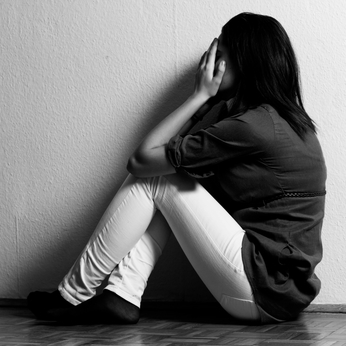
Teen Suicidal Depression
According to the most recent suicide statistics, suicide is now the second leading cause of death for youth aged 15-24 (previously it was the third). (Source, Social Awarness Voices of Education- citing CDC)
The state of the teen mind: impulse control does not fully develop until age 25. (Source, Dr. Jay Giedd, NIH Research)
A word to parents- keep communication open between you and your depressed teen (Youth Suicide Prevention Program). It’s important that you keep the lines of communication open and express your concern, support, and love. If your teen confides his or her concerns, it’s important to show that you take those concerns seriously. Ask questions. Often parents want to avoid questioning if their youngster is thinking of hurting themselves or thinking about suicide in case they ‘plant the idea’ in their head.
However hard it may be, it can help if you, not only ask if they are feeling suicidal, but mention why you are concerned…”I’ve noticed lately that you…”
There is difference between counseling for adults versus counseling for teenagers. Depression in teens can look very different from depression in adults. (HELPGUIDE.org); likewise, counseling teens is also different:
Offer support
Let depressed teenagers know that you’re there for them, fully and unconditionally. Hold back from asking a lot of questions (teenagers don’t like to feel patronized or crowded), but make it clear that you’re ready and willing to provide whatever support they need.
Be gentle but persistent
Don’t give up if your adolescent shuts you out at first. Talking about depression can be very tough for teens. Be respectful of your child’s comfort level while still emphasizing your concern and willingness to listen.
Listen without lecturing
Resist any urge to criticize or pass judgment once your teenager begins to talk. The important thing is that he/she is communicating. Avoid offering unsolicited advice or ultimatums as well.
Validate feelings
Don’t try to talk your teen out of his or her depression, even if his or her feelings or concerns appear silly or irrational to you. Simply acknowledge the pain and sadness he or she is feeling. If you don’t, he or she will feel like you don’t take his or her emotions seriously.
Youth Suicide Prevention Program: “We’ve believed that if we understood the conditions that lead to despair and hopelessness and suicidal behavior we could prevent these unnecessary deaths. But we now know that we must also focus on how they attempt suicide. Given that the majority of youth suicides are completed with a firearm and that there are an increasing number of lethal overdoses with prescription pain killers, it is imperative that we reduce access to these lethal means”.
This brings us to management of means- keeping the home environment safe:
Consider temporarily removing guns when a child or youth is going through an especially difficult time or store gun(s) locked and unloaded with ammunition locked separately; parents shouldn’t assume that their child does not know where the gun is stored or where the key is hidden.
Monitor all medications in the home.
Consider locking up medicines, if necessary. Medicines should always be stored out of reach and sight.
Dispose of old and unused medicines properly.
This where Pleaselive.org comes in. You or somebody you know need not feel as though you are alone. It may appear that we are talking with parents exclusively. We are not. Teens, we care for you! We can be there for you. Just click on the link above and you are there to find resources to fit your needs.
Mission Statement: The purpose and mission of Please Live shall be to promote help, welfare, and healing of at-risk teenage and college age students by providing educational and referral services to students, parents, and community members regarding depression, self-injury, and similar mental health issues which may lead to suicide and other unproductive life outcomes.
PLEASE LIVE SEEKS TO:
1. Educate students, youth staff, and community members about depression, suicide, and related mental health topics, signs & symptoms of mental illnesses, and where/how to seek help for mental health problems.
2. Empower students to look for and be aware of mental illness symptoms in themselves and in their peers.
3. Reduce the stigma surrounding mental health.